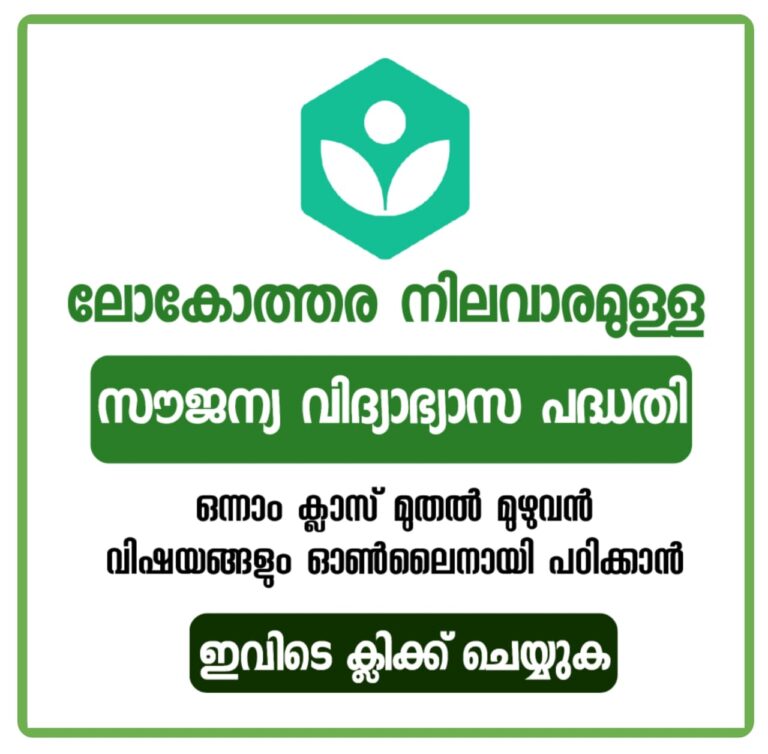In today’s rapidly evolving world, access to quality education has become a paramount concern. However, barriers such as cost, distance, and limited resources often hinder individuals, especially those in underprivileged communities, from acquiring the knowledge they need to thrive. Fortunately, Khan Academy, an American-based company, has emerged as a game-changer in the education sector, offering free educational services to people across the globe, including India. In this blog post, we will explore the transformative impact of Khan Academy’s free education service, its reach in India, and how it is revolutionizing the way people learn. Join us on a journey of empowerment, as we uncover the incredible potential of this pioneering platform and its mission to make education accessible to all.
What is Khan Academy?
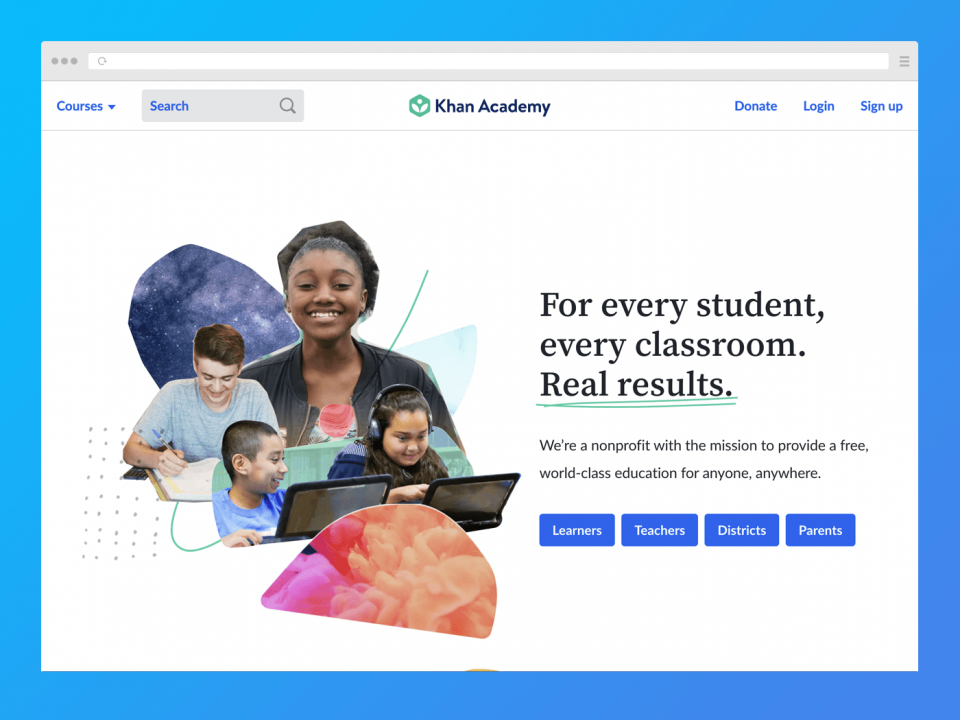
Khan Academy is a non-profit educational organization founded in 2008 by Salman Khan. It is a revolutionary online platform that offers a wide range of educational resources, courses, and instructional videos, all completely free of charge. Khan Academy’s mission is to provide a world-class education to anyone, anywhere, regardless of their background or financial means.
The platform covers various subjects, including mathematics, science, computer programming, history, economics, and more. Khan Academy’s extensive library of instructional videos serves as the backbone of its educational content. These videos feature Salman Khan himself explaining concepts in a clear and concise manner, making complex topics more understandable for learners of all ages.
One of the unique aspects of Khan Academy is its personalized learning approach. Users can create an account and access a dashboard that tracks their progress, offers recommendations for further study, and allows them to set specific learning goals. This adaptive learning model enables learners to study at their own pace, filling knowledge gaps and building a strong foundation in different subjects.
Khan Academy’s impact reaches far and wide, transcending geographical boundaries. Its services have been embraced by students, teachers, and lifelong learners around the world. In India, the platform has gained significant popularity due to its ability to supplement traditional education, particularly in areas with limited educational resources.
By providing free, high-quality education, Khan Academy has become a catalyst for positive change in the education landscape. It empowers individuals to pursue their passions, bridge educational gaps, and unlock opportunities that might have otherwise been out of reach. Through its innovative approach, Khan Academy is democratizing education and fostering a love for learning on a global scale.
Is Khan Academy Legit?
Yes, Khan Academy is a legitimate and reputable educational organization. It has gained recognition and acclaim worldwide for its high-quality educational content and commitment to providing free education to all.
Khan Academy’s legitimacy is supported by several factors:
- Non-profit status: Khan Academy is a registered non-profit organization, which means its primary goal is to provide educational resources and services rather than generating profits. This non-profit status further reinforces its commitment to the education sector.
- Founder’s qualifications: Salman Khan, the founder of Khan Academy, holds multiple degrees from prestigious institutions like MIT and Harvard. His educational background and expertise in mathematics and computer science contribute to the credibility of the organization.
- Partnerships and endorsements: Khan Academy has established partnerships with renowned educational institutions and organizations such as NASA, The Museum of Modern Art (MoMA), and the College Board. These collaborations demonstrate the recognition and support Khan Academy receives from the academic community.
- User testimonials and success stories: Khan Academy has a vast user base comprising students, teachers, and self-learners who have benefited from its educational resources. Many individuals have shared their positive experiences and success stories, highlighting the effectiveness and legitimacy of Khan Academy’s offerings.
- Transparency and accountability: Khan Academy maintains transparency by openly sharing information about its mission, financials, and impact. The organization provides annual reports and financial statements, allowing the public to assess its operations and accountability.
Considering these factors, Khan Academy has established itself as a trusted and legitimate educational resource. It continues to make a significant impact in the field of education by providing free, accessible, and high-quality learning materials to learners of all ages and backgrounds.
Is Khan Academy Accredited?
No, Khan Academy is not accredited in the traditional sense. Khan Academy does not offer formal degrees or certifications recognized by educational accrediting bodies. Instead, it provides supplementary educational resources, instructional videos, and practice exercises to help learners grasp various subjects and concepts.
It’s important to understand that Khan Academy is primarily a self-study platform that aims to support and enhance traditional education rather than replace it. Many individuals, including students, teachers, and lifelong learners, utilize Khan Academy’s resources alongside their regular academic curriculum to reinforce understanding, fill knowledge gaps, or explore additional topics.
While Khan Academy’s materials can be highly beneficial for learning and skill development, they do not substitute for the formal accreditation offered by educational institutions. If accreditation or official recognition is necessary for your educational goals or career aspirations, it is important to seek programs or institutions that provide recognized degrees, certifications, or accreditation through proper channels.
It’s worth noting that Khan Academy has partnered with organizations and institutions that offer accredited programs. For example, Khan Academy has collaborated with the College Board to provide test preparation materials for exams such as the SAT. However, the accreditation and recognition of these programs come from the respective institutions themselves, not Khan Academy directly.
In summary, while Khan Academy is not accredited, it remains a valuable and reputable resource for supplementary education, self-study, and skill development. It’s always advisable to consider your specific educational needs and goals when evaluating the suitability of any educational platform or resource.
Who Should Use Khan Academy?
Khan Academy is a versatile educational platform that can benefit a wide range of individuals. Here are some groups of people who can find value in using Khan Academy:
- Students: Khan Academy is a valuable resource for students of all ages, from elementary school to college. It offers comprehensive content in subjects like mathematics, science, history, economics, computer programming, and more. Students can use Khan Academy to reinforce their understanding of classroom topics, fill knowledge gaps, prepare for exams, or explore new subjects.
- Homeschoolers: Khan Academy can be an excellent supplement for homeschooling families. It provides structured educational materials, video lessons, and practice exercises across multiple subjects. Homeschoolers can use Khan Academy to enhance their curriculum, provide additional resources, and ensure a well-rounded education for their children.
- Teachers: Khan Academy offers tools and resources for educators to enhance their teaching. Teachers can use the platform to assign exercises, monitor student progress, and access supplemental materials to support their lessons. Khan Academy can be a valuable resource for differentiated instruction and personalized learning in the classroom.
- Lifelong Learners: Khan Academy is not limited to formal education. Lifelong learners who have a passion for acquiring knowledge and exploring new subjects can benefit from the platform. Whether you want to learn a new skill, delve into a specific topic, or simply expand your intellectual horizons, Khan Academy provides a wealth of educational content to facilitate self-guided learning.
- Test Preparations: Khan Academy offers test preparation materials for standardized exams like the SAT, LSAT, MCAT, and more. Students can utilize these resources to familiarize themselves with the exam format, practice sample questions, and improve their test-taking skills.
- Global Learners: Khan Academy’s resources are available to anyone with an internet connection, making it accessible to learners worldwide. It is particularly beneficial for individuals in underserved communities or regions with limited educational resources, allowing them to access high-quality educational materials without financial barriers.
Overall, Khan Academy caters to a diverse audience, including students, teachers, homeschoolers, lifelong learners, and those preparing for standardized tests. Its versatility and accessibility make it a valuable educational tool for a wide range of individuals seeking to enhance their knowledge and skills.
How Does Khan Academy Work?
Once you arrive at Khan Academy’s website, you’ll see its simple and straightforward user interface. The web design is simple and uncluttered, making navigation a smooth experience.
On the homepage, you’ll see four clickable buttons: Learners, Teachers, Districts*, and Parents. Clicking on Learners, Teachers, or Parents brings you to Khan Academy’s sign-up page where you can sign up as a learner, teacher, or parent. Each account has different features that can benefit you. However, you don’t even have to create an account to use the platform.
Learning is as simple as clicking the “Courses” link on the home page’s top left corner. You’ll see a drop-down menu of all available Khan Academy courses. Simply select the course you’d like to learn, and it will take you to the course’s page. For example, clicking on Computer Programming will bring you to the page below:
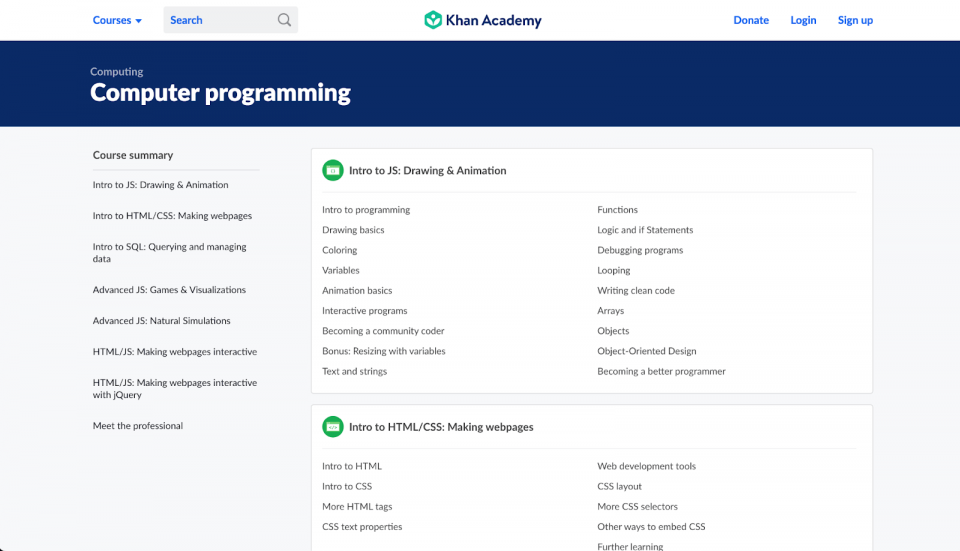 From here, you can select whichever lesson you’d like to start from. Let’s start with HTML. Clicking on “Intro to HTML” will open the course’s lessons, which are already arranged in order to make it easier for you to learn concepts one after the other.
From here, you can select whichever lesson you’d like to start from. Let’s start with HTML. Clicking on “Intro to HTML” will open the course’s lessons, which are already arranged in order to make it easier for you to learn concepts one after the other.
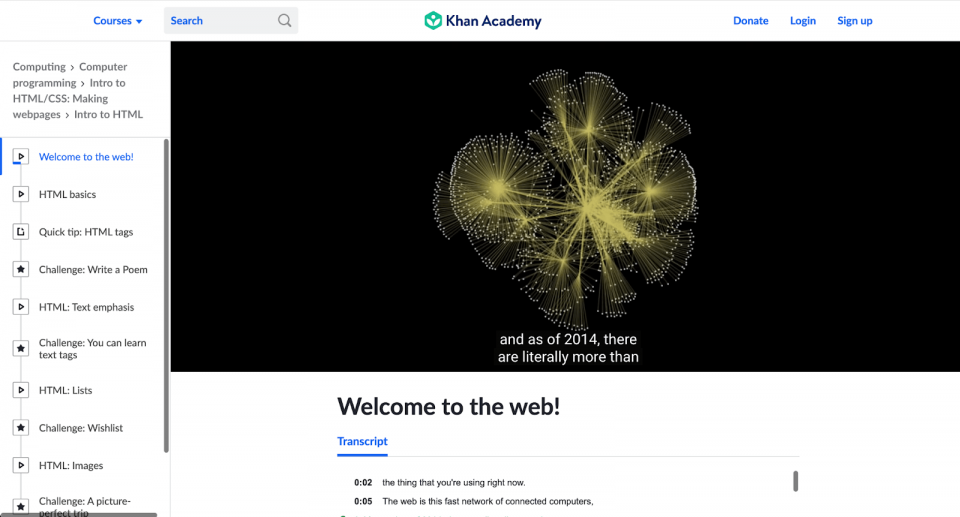
Clicking on an actual lesson will bring you to the lessons page, which contains the lesson video, transcript, questions, tips, and more.
Account holders can earn “Energy Points’” as they watch lectures and complete certain tasks on Khan Academy. These points gamify the entire learning experience, encouraging you to continue your journey.

According to Khan Academy’s information page, energy points measure the effort spent learning on the platform. However, they do not measure your ability or mastery of the subject. You can earn points by:
- Completing a video
- Completing challenges in computer programming
- Doing practice problems
- Completing tasks
But what exactly can you use the points for?
Earning points can help you earn a badge. You can also use them to evolve your profile avatar:
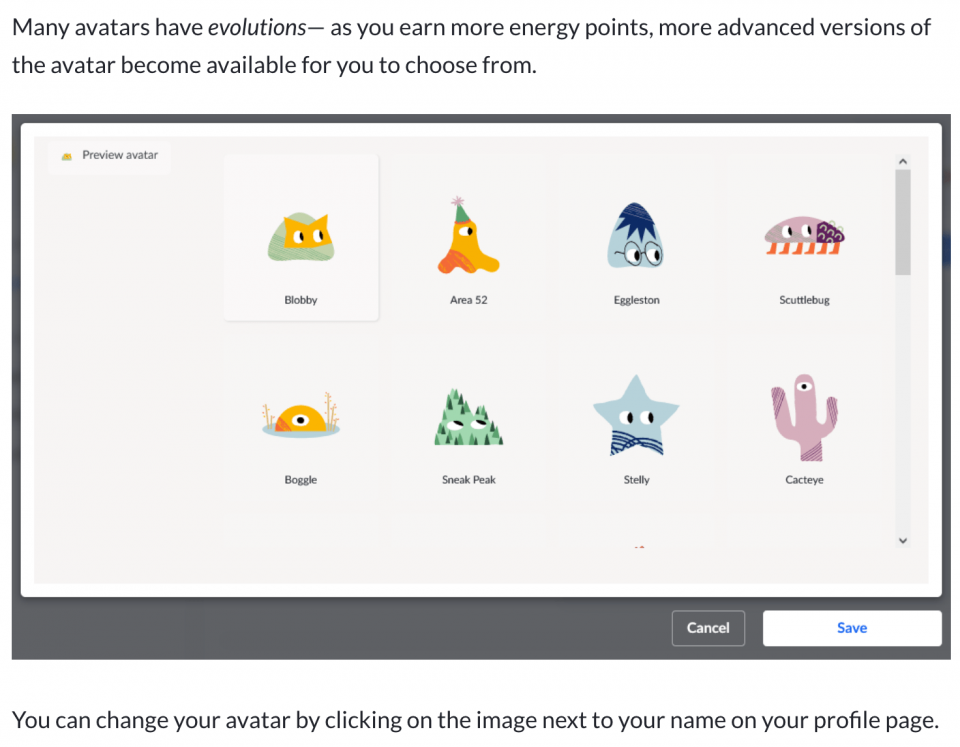
Another form of gamification on the platform is badges (and challenge patches). You can earn badges in different ways — earning energy points, learning computer science, building exercise mastery, and more. Badges have five levels: meteorite (most common), moon, earth, sun, and black hole (rarest).
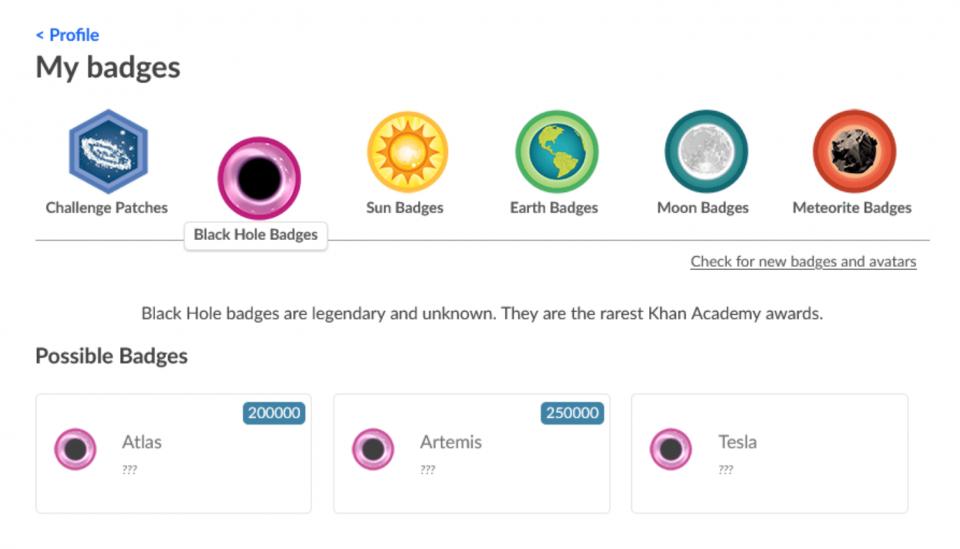 Badges, avatars, and energy points help motivate learners to finish lessons, tasks, and exercises. It’s a novel way to get students to keep up with their courses!
Badges, avatars, and energy points help motivate learners to finish lessons, tasks, and exercises. It’s a novel way to get students to keep up with their courses!
How to Open a Khan Academy Account
Setting up a Khan Academy account isn’t mandatory. You can get by without ever signing up for one, although you’ll miss out on a few features. For example, you won’t be able to:
- Track your progress on the courses you are learning
- Earn any energy points
- Earn any badges
- Use any avatars
Participate in course question sections and forums

If you use Khan Academy without an account, the website will notify you that your progress isn’t saved, along with an easy link to log in or sign up.
Luckily, signing up for a KA account is incredibly straightforward. From the homepage, click on one of the buttons below to begin the sign-up process. Districts are more for student districts, so choose Learners, Teachers, or Parents.
 Don’t worry if you click the wrong item — the next page allows you to change your choice.
Don’t worry if you click the wrong item — the next page allows you to change your choice.
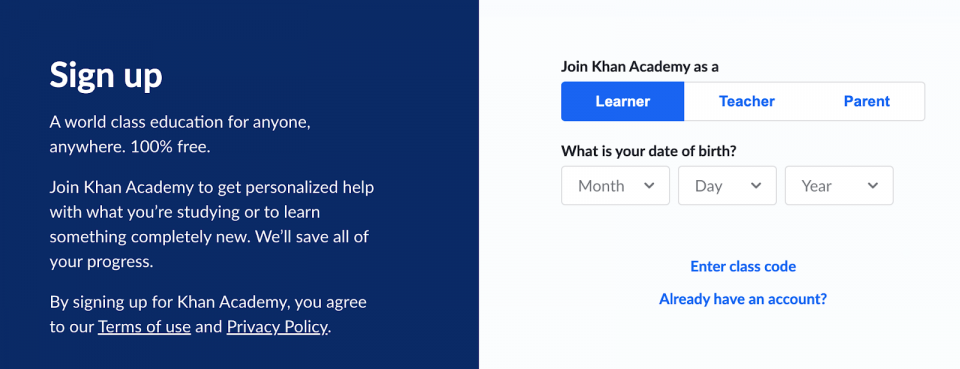
When signing up as a student, you’ll need to enter your birth date. Once you do, you can sign up with an email address or using your Google, Facebook, or Apple account. Users must be 13 years or older to create an account; otherwise, their parents can create the account for them.
You can sign up as a teacher with an email address or a Google, Facebook, Apple, or Clever account. Check out some teacher account benefits below:
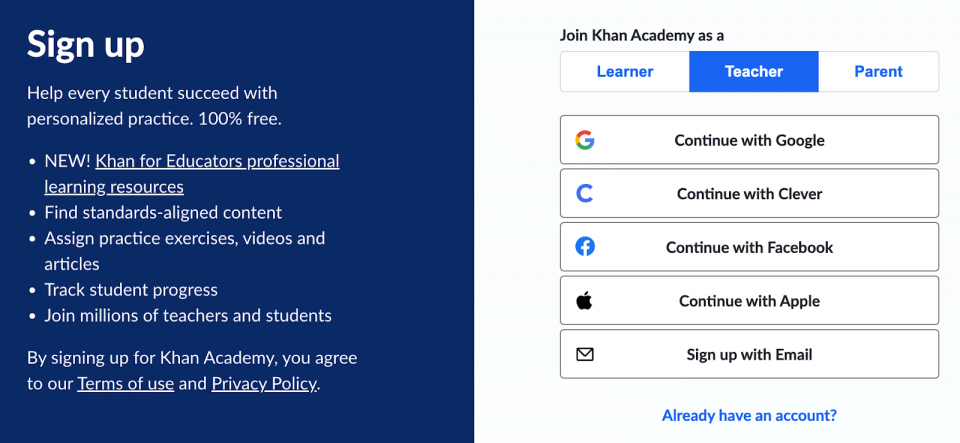 You can sign up as a parent using your email address, Google, Facebook, or Apple account. Once you have created your parent account, follow KA’s instructions to create an account for your child.
You can sign up as a parent using your email address, Google, Facebook, or Apple account. Once you have created your parent account, follow KA’s instructions to create an account for your child.
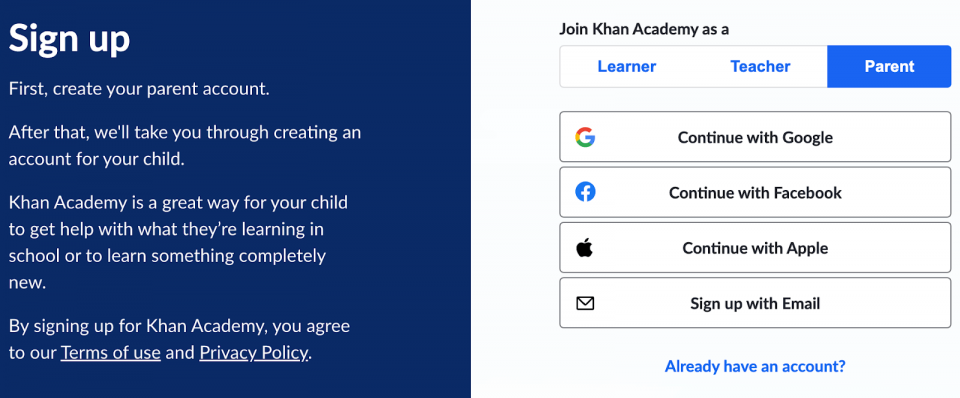
The Pros and Cons of Khan Academy
Is Khan Academy good? The platform has a few advantages and disadvantages, but you’d be hard-pressed to find many critical reviews. Let’s assess the pros and cons of Khan Academy:
| Pros | Cons |
|
|
|
|
|
|
|
|
|
|
|
|
|
|
|
|
|
|
|
How Much Are Khan Academy Courses?
Learning at Khan Academy will cost you a big, fat… nothing! As a 501(c)(3) non-profit educational organization, Khan Academy provides its courses entirely for free.
Khan Academy states that its mission is “to provide a free, world-class education for anyone, anywhere.”
When you go to Khan Academy, you’ll notice no prices or ads for revenue. So how exactly does Khan Academy fund everything, considering they don’t make any income?
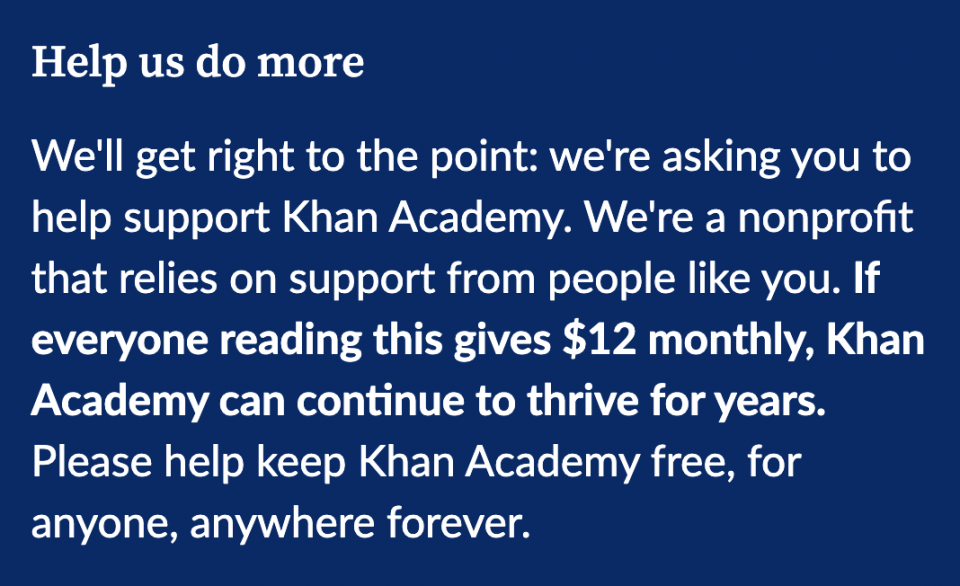
Well, donors and philanthropists generously cover Khan Academy costs. Many supporters have donated millions to the platform, helping it provide its high level and quality of education. However, Khan Academy accepts donations from the common individual as well.
If you wish to donate to Khan Academy, you can do so here — every little bit helps. You can make a one-time donation or choose the monthly option. Khan Academy suggests monthly donations starting at $12 and capping out at $50, though you can also choose a custom amount. The platform also has a checkbox you can tick to add $0.30 to your monthly total to cover the transaction fees. For one-time donations, the transaction fees are $0.63.
When you donate to Khan Academy, you can do so via credit card or PayPal. You can also donate with a check or using Square Cash or Bitcoin. You can find more information here.
If you would like to offer your support to the platform without making any monetary gifts, you can choose to be a contributor to the platform, helping with things such as translation.
Does Khan Academy Offer Free Courses?
Yes — every single course at Khan Academy is absolutely free.
Khan Academy Tuition Refunds
Because the courses on Khan Academy all come for free, there is no need for refunds. Donations and contributions to the platform are also non-refundable. If you are on a monthly donation schedule, you can cancel your donation to stop the next month’s payment. The link to cancel your donation is at the bottom of your receipt.
What Kinds of Courses are Available at Khan Academy?
There are many courses available on Khan Academy, but most of them are geared toward a K-14 audience. Going to their website and clicking on the “Courses” link on the top left of the page will bring up the menu in the screenshot below:
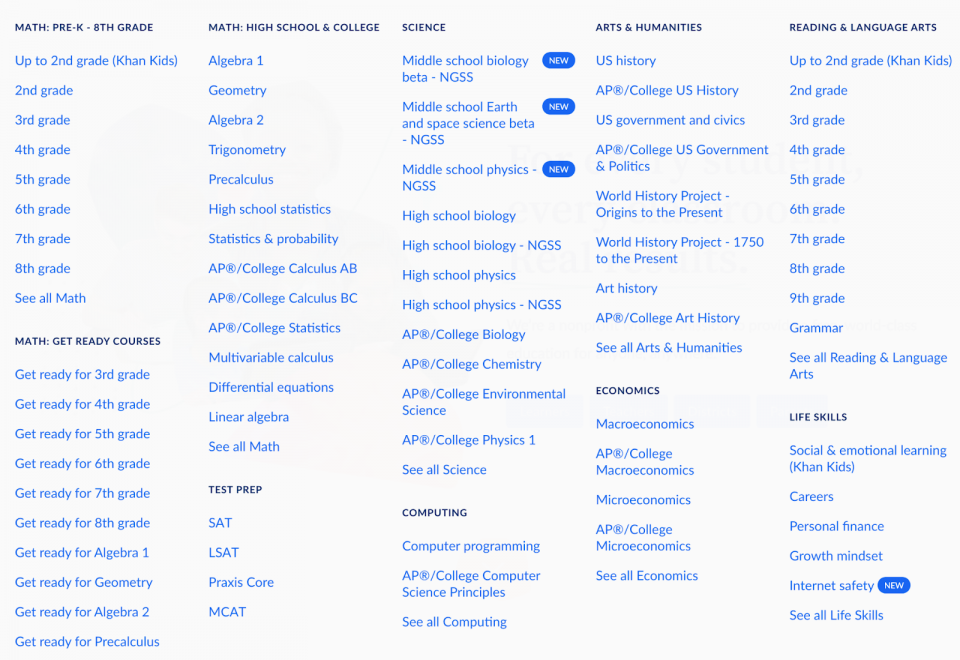
Khan Academy has a few subjects available. Students can learn math, science, computing, arts and humanities, economics, reading and language arts, test prep, and life skills. Each category has plenty of sub-categories containing actual courses and lessons.
You may have noticed that Khan Academy mostly focuses on mathematics, even going so far as to provide three main categories — Get Ready Courses, Pre-K to 8th Grade, and High School and College. With how many math courses are available at various levels, it comes as no surprise that many teachers and homeschooling parents use Khan Academy’s math courses.
Of course, it’s also important to note that Khan Academy provides courses in computing, including computer programming and a few computer science courses like information theory, algorithms, and cryptography. You can also check out Khan Academy’s AP or College Computer Science Principles courses, which include topics like:
- Programming
- Data Analysis
- Online Data Security
- Simulations
- Computing Innovations
You don’t even need to create an account — learning is as simple as navigating to your course and lesson of choice. Finally, you can view the lesson videos right in your browser (or in your mobile app).
How to Choose the Right Khan Academy Course
Choosing the right Khan Academy course for you is as simple as selecting one from the course menu. All the courses are available for free, so you can just stop and choose another course if you don’t like the one you’re on!
Best Khan Academy Courses
There aren’t many tech-related courses at Khan Academy, but we can certainly recommend the Computer Programming course.
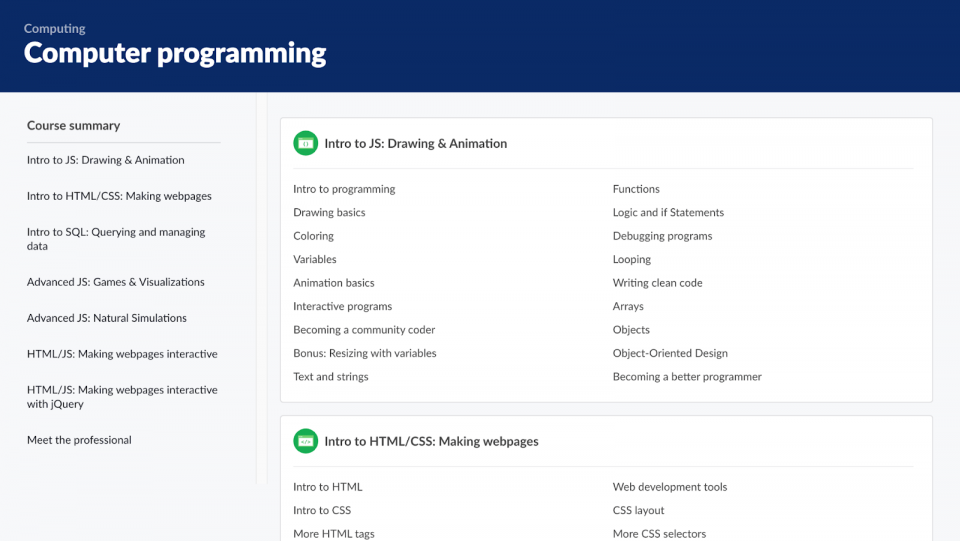
Khan Academy’s computer programming section offers excellent introductions to HTML, CSS, JavaScript, and SQL. You can learn here for free and then move on to other courses on other platforms for additional learning.
Feel free to also check out the other courses available in KA’s Computing section. You might even find some of the courses like personal finance and internet safety in the Life Skills section useful!
Our Khan Academy Review: In Summary
Khan Academy is an excellent platform that many love. Here’s our review at-a-glance:
- User-friendliness: 4.5/5 – Using this platform is simple and doesn’t require you to be tech-savvy. We also like that having an account isn’t necessary to access the lessons.
- Convenience: 5/5 – Khan Academy is available on all platforms, including its iOS or Android app. You can even access the platform offline.
- Accessibility: 5/5 – Offline access, video transcripts, and transcript translation into as many as 28 languages win a max score from us.
- Affordability: 5/5 – It’s free. Need we say more?
- Certification: N/A – Khan Academy provides no certificates.
- Catalog: 2.5/5 – The catalog actually gets a 5/5 if you’re a K-14 learner. But for tech-related content, we give it a 2.5/5.
- Course quality: 5/5 – Khan Academy’s content specialists make sure courses are fact-checked and are high-quality.
- User support: 5/5 – You’ll notice Khan Academy offers excellent customer support, with thoughtful and constant responses to user inquiries and complaints.
- Payment methods: 4.5/5 – Khan Academy does its best to make it easy for you to donate using your credit card, PayPal, Square Cash, or Bitcoin.
- Refund policy: N/A
Final Verdict and Rating
It’s really difficult to find negative Khan Academy reviews. After all, it’s hard to fault Khan Academy — especially when it provides everything it does at no cost. However, with its main focus being K-14 education, you’ll have a tough time learning more than the basics to help you start your career in tech. Nevertheless, we believe Khan Academy is an excellent platform that deserves a rating of 4.5/5 stars — we just wish it had more courses for tech-related skills!
Our final rating: 4.5/5
Certainly! Here are the download links and the official website link for Khan Academy:
- Khan Academy Website: https://www.khanacademy.org/
Khan Academy is primarily a web-based platform, and you can access its resources directly through their website.
However, they also have mobile applications available for download on both iOS and Android devices:
- Khan Academy iOS App: Download on the App Store
- Khan Academy Android App: Get it on Google Play
By downloading the mobile apps, you can access Khan Academy’s educational content on your mobile devices, providing convenient learning opportunities on the go.
Please note that the links provided are for the official Khan Academy website and mobile applications. Always ensure that you are downloading from official sources to maintain the security and integrity of your devices.
Alternatives to Khan Academy
Khan Academy offers almost unbeatable value considering it’s completely free. However, if your main purpose is to learn new skills and knowledge to start or advance a tech career, Khan Academy might leave you wanting more. Luckily, there are many alternatives available — some of them even have free courses available. The best part is that most of these alternatives provide certificates you can add to your resume.
Let’s take a look at some of the alternatives:
- SkillUp by Simplilearn has hundreds of free courses available. These courses, which industry experts created, can help you learn from experts in the industry anytime, anywhere. With SkillUp, you get to learn 600+ in-demand skills — and you also get access to free guides, job interview tips, and so much more. Plus, if you want to learn more and get certificates you can put on your resume, you can sign up for one of Simplilearn’s paid courses.
- Udemy is an excellent platform if you want to upskill and get your career going. The platform has hundreds of thousands of courses, so you’ll likely find one that suits your needs (just make sure to check reviews). If you are unhappy with your course, you can return it within thirty days for a full refund. Udemy also has some free courses, but you must pay a fee for a certificate of completion. Finally, employers don’t always recognize Udemy’s certificates; however, if you can prove your skill or if you have a good portfolio, your certificate won’t matter as much.
- EdX is a MOOC platform created by some of the world’s most prestigious universities — Harvard and MIT. The platform features many courses for free or for a price, and even offers bachelor’s and master’s degrees. Courses are made in association with some of the best universities in the United States, so you can be sure of the quality.
Conclusion
Khan Academy is a wonderful non-profit organization with noble advocacy — to provide learning for free, to everyone, forever. With continued support from benefactors and philanthropic donations from massive companies and foundations, Khan Academy can continue on its mission for many years to come.
We hope this Khan Academy review has helped you gain more insight into this free e-learning platform and what it can do for you. Happy learning!
If you want to find more avenues to a dream free language learning online facility , we’ve got you covered.
World wide language learning mobile application
Frequently Asked Questions
1. Is Khan Academy Trustworthy?
Absolutely! Khan Academy has received donations from major companies and charitable organizations such as Google, the Bill and Melinda Gates Foundation, Comcast, the Elon Musk Foundation, and College Board. In February of 2022, Google made an additional $5,000,000 donation to Khan Academy going toward content development.
Khan Academy has tons of experts helping them create and curate their courses, ensuring high quality all around. You can see their content specialists here.
2. Is Khan Academy absolutely free?
Is Khan Academy free? Yes! Khan’s online Academy provides free education for everyone, regardless of age or background. The 501(c)(3) non-profit organization’s advocacy is to keep the platform free for anyone, anywhere, forever. To achieve this goal, Khan Academy accepts donations.
3. Can Khan Academy be Used as a Full Curriculum?
Generally, no — we don’t recommend using Khan Academy as a full curriculum. However, many parents who homeschool their children and traditional teachers use Khan Academy’s courses as part of their curriculum. Finally, you might consider only using Khan Academy as a full curriculum for its math courses, which go from early math to calculus.
4. What Age Group is Khan Academy For?
Khan Academy is a platform for all ages. Anyone can come and learn on the platform, regardless of their age, so if there’s something you want to learn, you can go right ahead and look for a course on Khan Academy.
That said, Khan Academy has shifted its focus toward K-14 education.
5. Can Adult Learners Use Khan Academy?
Yes! You can find courses at Khan Academy like history and science, which aren’t exclusive to younger-aged learners. Sure, much of the website’s content is more for K-14 learners, but don’t let that fact stop you. Learning is for anyone, any age. Try looking at the Life Skills section if there’s anything that interests you!
